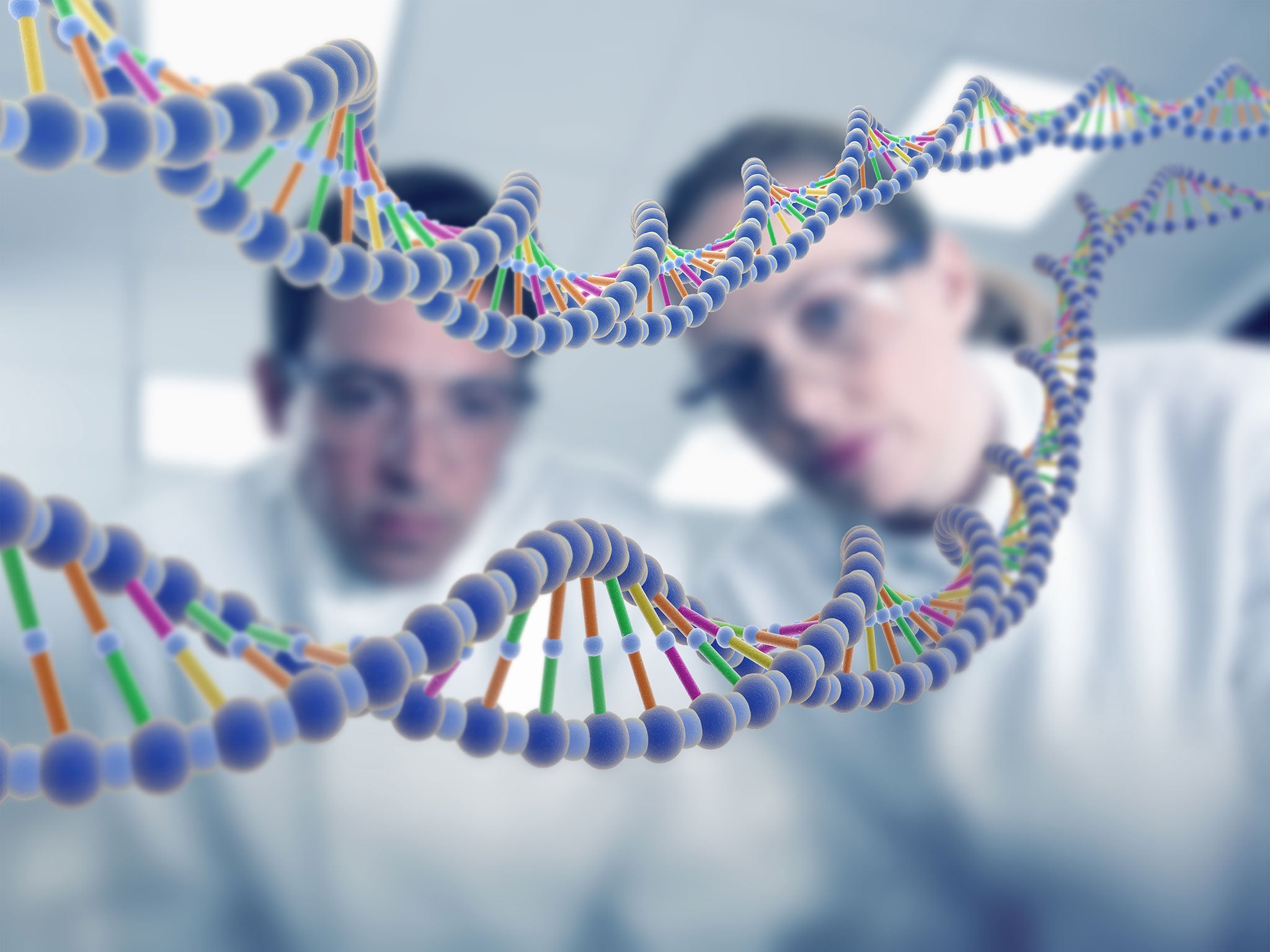DNA clues could predict when people will die
'Biological clock' can be watched by observing a process known as methylation, which happens to DNA

Your support helps us to tell the story
From reproductive rights to climate change to Big Tech, The Independent is on the ground when the story is developing. Whether it's investigating the financials of Elon Musk's pro-Trump PAC or producing our latest documentary, 'The A Word', which shines a light on the American women fighting for reproductive rights, we know how important it is to parse out the facts from the messaging.
At such a critical moment in US history, we need reporters on the ground. Your donation allows us to keep sending journalists to speak to both sides of the story.
The Independent is trusted by Americans across the entire political spectrum. And unlike many other quality news outlets, we choose not to lock Americans out of our reporting and analysis with paywalls. We believe quality journalism should be available to everyone, paid for by those who can afford it.
Your support makes all the difference.A biological clock in people's DNA could tell could tell scientists how long they will live.
Researchers have found that chemical changes in DNA can help us understand people’s “biological age” — a measure of how old their body is that seems to be able to predict when people are going to die.
Scientists found that people whose biological age showed them as older than their real age were more likely to die sooner. That still held true, even accounting for other factors like smoking and heart disease.
Four independent studies tracked 5,000 people for up to 14 years. Researchers measured each of their biological ages, and then compared it over time.
Scientists found that the link between biological age and the chance of death held up.
The study's principal investigator, Professor Ian Deary, from the University of Edinburgh's Centre for Cognitive Ageing and Cognitive Epidemiology, said: "This new research increases our understanding of longevity and healthy ageing.
"It is exciting as it has identified a novel indicator of ageing, which improves the prediction of lifespan over and above the contribution of factors such as smoking, diabetes and cardiovascular disease."
Scientists measured people’s biological age by looking at a chemical modification that happens to DNA, known as methylation. It plays an important role in biological processes, and can turn genes on and off.
Researchers have published their results in the journal Genome Biology.
It was conducted by researchers from the University of Edinburgh, University of Queensland, Harvard University, University of California, Los Angeles (UCLA), Boston University, the Johns Hopkins University Lieber Institute for Brain Development and the US National Heart, Lung and Blood Institute.
Join our commenting forum
Join thought-provoking conversations, follow other Independent readers and see their replies
Comments